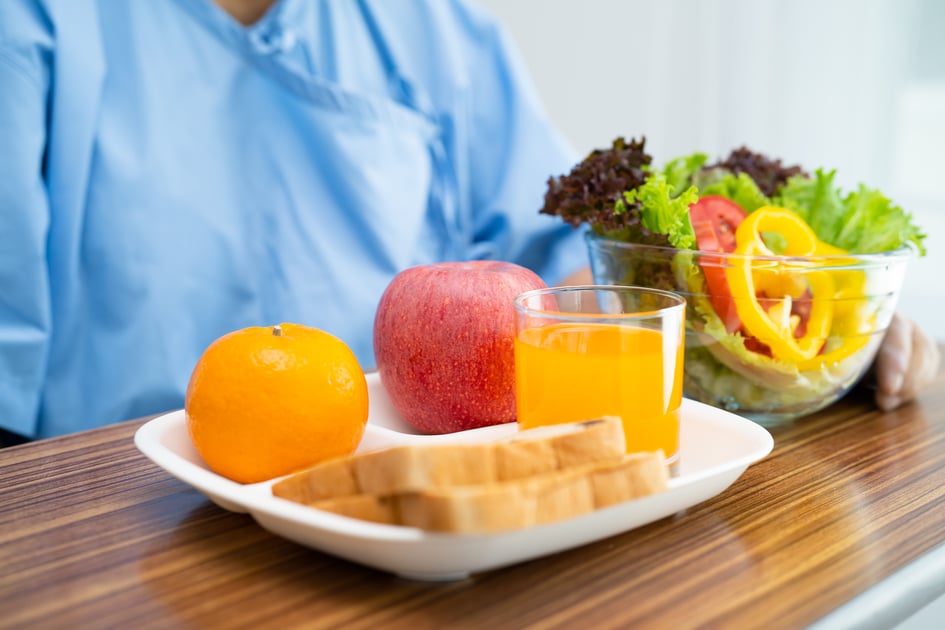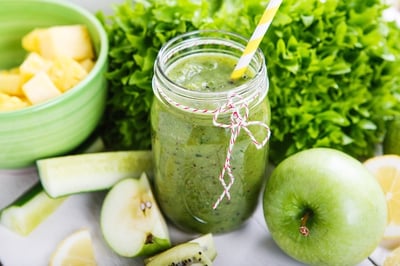Feeling better through food: 8 foods to eat after surgery
Walker Methodist | Apr 19, 2022

Eating healthy foods is a great practice in life, but it is especially important after surgery. No matter how impactful your surgical procedure, your body is working hard to heal, and you can help by giving it the special care it needs through nutrient-rich foods.
The following foods contain nutrients that give your body the energy it needs to recover, strengthen your immune system, and help alleviate certain post-surgery side effects. Some foods even aid directly in healing damaged tissue and wounds.
Here are the top eight foods to eat after surgery:
1. Soups and broths
It is not uncommon after surgery to experience a bit of nausea or loss of appetite. Since it’s extremely important not to deprive your body of the nutrition and hydration it needs to recover, soups and broths can save the day if you’re dealing with this post-surgery side effect.
Soups are light and easy to swallow, while still providing vital nutrients for healing. Think about selecting soups that contain hearty amounts of vegetables and protein like black bean, vegetable, or lentil soups. Fluids are also a vital part of recovery, and soups help keep you hydrated while still packing a nutritional punch.
2. Fresh fruit
Antioxidants, found naturally in most fruit, boost your immune system by protecting your body's cells from free radicals. Free radicals are unstable molecules in the body that can cause disease, inflammation, and other problems. This is why you should make sure to fuel your healing body with plenty of antioxidants.
Berries–such as blueberries, blackberries, raspberries, and strawberries–are all incredible sources of antioxidants. Other forms of fresh fruit, like oranges, peaches, and pears are great to incorporate into your post-surgery diet as well.
3. Vegetables
Speaking of antioxidants, dark leafy greens such as kale, spinach, and broccoli are well-known sources of these important nutrients as well. So this is the perfect opportunity to toss together an antioxidant-rich salad for lunch or dinner.
And don’t forget the toppings. Carrots, bell peppers, brussels sprouts, cauliflower, and many other vegetables are packed with nutrients that support immune health and boost your energy as you recover.
4. Smoothies
 Not a big fan of fruits and vegetables on their own? Smoothies are a great way to get all the aforementioned benefits of antioxidants blended into one delicious cup. This is also another great option for those struggling with a loss of appetite.
Not a big fan of fruits and vegetables on their own? Smoothies are a great way to get all the aforementioned benefits of antioxidants blended into one delicious cup. This is also another great option for those struggling with a loss of appetite.
Berries and fruits are the typical main ingredients, but leafy veggies like kale and spinach serve as the stars of “green” smoothies. Of course, a handful of veggies can also be artfully hidden in a fruit smoothie.
Blend in Greek yogurt, a scoop of nut butter, or flax seeds to maintain your blood sugar level with healthy fats and protein.
5. Lean meats and proteins
Did you know that protein builds and repairs muscle tissue, giving the food group wound-healing superpowers? This makes it all the more important to make protein a key element of your post-surgery diet.
To reap this food group’s full healing benefits, you will want to stay away from red meats and stick to lean meats such as fish and poultry. There are plenty of vegetarian and vegan protein options as well. Beans, tofu, and even Greek yogurt are good choices.
6. Eggs
Eggs can be prepared both hard and soft, making them a versatile option as your post-surgery appetite changes. Oftentimes scrambled or poached eggs are the star component of breakfast, but hard-boiled eggs, prepared in advance, can make a quick and healthy afternoon snack option as well.
While high in protein, eggs also contain a hearty dose of the mineral zinc. Zinc can heal damaged tissue, and support the immune system, which means it is something you definitely do not want to neglect when it comes to healing a surgical wound.
The following two items on this list are also great sources of zinc.
Nuts and Seeds
Nuts and seeds are the perfect way to get a quick burst of energy. They provide all the above-mentioned benefits of protein without the hassle of preparation and cooking time, making them the perfect snack for your recovery period.
Many types of nuts also fall into the category of “healthy fats” which give your body energy, keep your immune system strong and even promote cell growth.
Grab a quick handful of almonds, pistachios, walnuts, pepitas (pumpkin seeds), or sunflower seeds. Or top a piece of fruit or toast with peanut or almond butter. Flax and chia seeds also make powerful additions to oatmeal, toast, or yogurt.
Whole Grains
Because many post-surgery pain medications can cause constipation, it’s important to eat plenty of fiber while recovering. Fiber eases constipation and even acts as a scrub brush of sorts to clean out your colon.
Whole grains are a great source of fiber, and chances are they’re already a staple in your household. Whole wheat bread, brown rice, buckwheat, oatmeal, quinoa, and even popcorn are great sources. Plenty of pasta and cereals are made from whole grains as well—just check the nutrition label on the box!
Whole grains will also keep your energy up and help you maintain a healthy weight as your body recovers.
Eating the right foods after surgery is the perfect way to support your body as it recovers. And remember to always consult your doctor or surgeon when it comes to specific questions about your individual post-surgery dietary needs.

